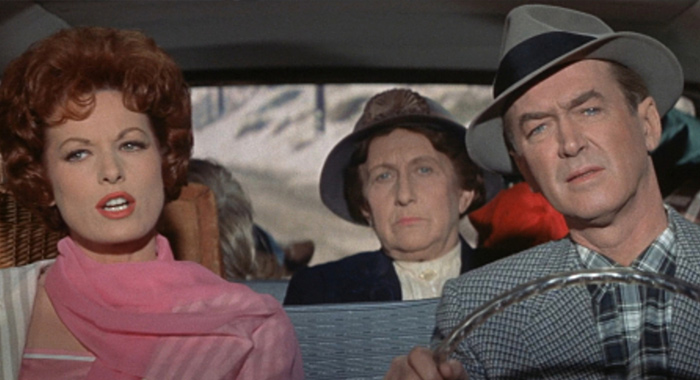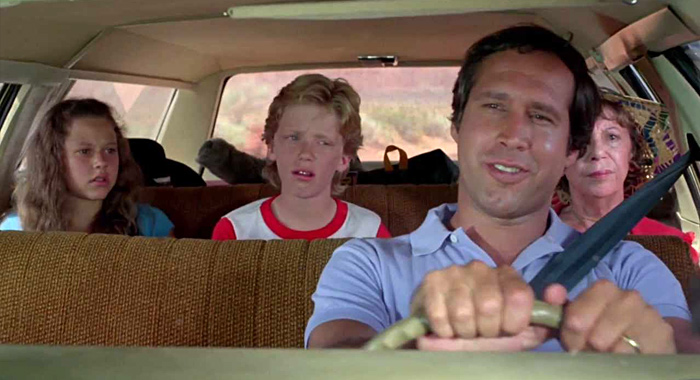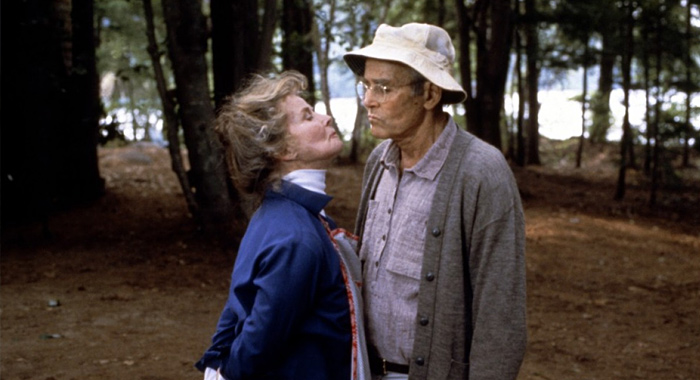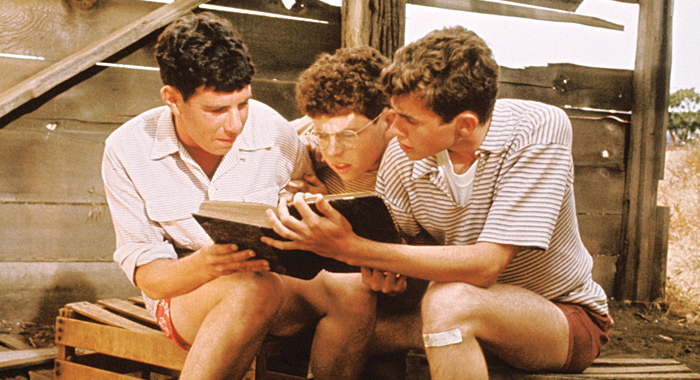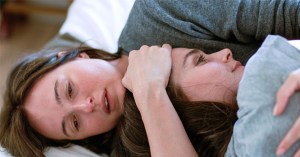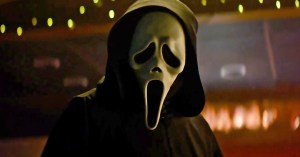10 Best Summer Vacation Movies
We run down some of cinema's finest seasonal getaways.
Attention, people who are not fans of pencils, books, teachers, and/or dirty looks: This is your time of year. The mercury is rising, schools are closing their doors, wardrobes are shrinking, and folks all across this great nation are getting ready to go on — you guessed it — summer vacation! In honor of our collective yearning to clock out of work, buckle the family into the minivan, and head off for sunny adventures, we’ve decided to dedicate this week’s Total Recall to movies that revolve in some way around summer vacation. We picked a few classics, but we tried to include a few surprises, too — all in the name of giving you a well-rounded list with room for comedy, drama, dancing, and even a little sci-fi. Are you ready for the summer?
Dirty Dancing director Emile Ardolino didn’t use actual mountains of cheese to stand in for the Catskills, but he may as well have; this tale of a brooding dance instructor at a swanky resort (Patrick Swayze) who falls for a wealthy teenage guest (Jennifer Grey) during the summer of 1963 is filled to the brim with pungent dialogue and plot devices. But underneath the schmaltz beats an endearingly earnest heart — and some pretty good dance moves, as noted by Steve Rhodes, who wrote that “the film’s saving grace is that fully a third of the film has the actors dancing rather than talking.”
For a lot of us, summer loses its promise of fun and freedom as we get older and assume responsibilities that can’t be set aside for three months at a time. What if you could not only recapture that youthful summer feeling, but keep it going all year long? That’s the question posed by Bruce Brown’s classic documentary, which follows a pair of surfers (Mike Hynson and Robert August) as they pursue the summer surfing season across the globe, from California to Africa, Australia, and beyond. The Endless Summer boasts a killer soundtrack and Brown’s style was groundbreaking for the genre at the time, but — and probably most importantly — it’s just a really entertaining film. As Christopher Null wrote for Filmcritic, “you can’t help but laugh and feel good while watching their lighthearted antics.”
For teenagers, the summer is often seen as a time of reinvention — an opportunity to try new experiences and adopt different behaviors away from the judgment of classmates who know who they “really” are. This kind of experimentation can produce unintended results, as demonstrated in Frank Perry’s Last Summer, which follows four deceptively worldly teens (played by Barbara Hershey, Bruce Davison, Richard Thomas, and Catherine Burns, who earned an Oscar nomination) through a Fire Island vacation that tests their darkest and most selfish impulses. The film’s explicit content originally cost it an X rating, but it was that brutal honesty that appealed to critics like Roger Ebert, who wrote, “There are good movies about other people’s lives, but rarely a movie that recalls, if only for a scene or two, the sense and flavor of life the way you remember it.”
The summer camp comedy is pure formula, but it can be a winning one with the right ingredients. Case in point: Bill Murray and director Ivan Reitman, who kicked off their American film careers with this harmlessly raunchy look at a week in the life of Camp North Star, where lackadaisical counselor Tripper (Murray) helps a misfit camper (Chris Makepeace) come out of his shell just in time to give the rich kids over at Camp Mohawk a taste of their own medicine. “You don’t mind the lack of structure,” noted Filmcritic’s Pete Croatto, “especially since it’s delivered by a good-natured and good-humored young cast.”
Decades before Chevy Chase blundered his way across the country in National Lampoon’s Vacation, Jimmy Stewart suffered through his own surprisingly stressful family getaway. Surrounded by a mismatched brood that includes four children (two of whom are married with kids of their own) and a wife whose well-meaning vacation rental turns out to be a dilapidated house of horrors, Stewart’s Mr. Hobbs is forced to “relax” by warding off bats, fixing a water pump, and bribing a teenage boy (played by Fabian) to pay attention to his brace-faced daughter. Not exactly cutting-edge comedy, even in 1962, but as Reel’s James Plath pointed out, “Stewart’s performance alone makes this an entertaining film.”
For everyone who ever suffered through a hellish forced march through “quality time” gone wrong with the family, National Lampoon’s Vacation is a soothing (and laugh-out-loud funny) reminder that you are not alone. Chevy Chase was never more squarely in his wheelhouse than when he played the arrogant, incompetent, but ultimately sweet-natured Clark Griswold, and many of his funniest moments (not to mention most quotable lines) come in the original Vacation. Even Dave Kehr of the Chicago Reader had to laugh, noting, “Despite plenty of gross-out gags and dumb slapstick bits, the careful viewer can occasionally detect some acrid and original satire in this 1983 film.”
Savage Steve Holland followed up his classic Better Off Dead by reuniting with John Cusack for this equally madcap — albeit far more uneven — tale of an aspiring cartoonist who spends the summer after high school in Nantucket, where he gets mixed up with a singer (Demi Moore) and her quest to save her grandfather’s home from a wealthy local family. Sadly, One Crazy Summer failed to generate much heat at the box office, despite Holland’s flair for the absurd, a charming cast (which also included Curtis Armstrong as the unforgettably named Ack Ack Raymond), and reviews from critics like Gregory Weinkauf of the New Times, who asked, “Remember fun? This movie does.”
In a marvelously successful example of art imitating life, Jane Fonda purchased the film rights to Ernest Thompson’s novel about a fractured family’s lakeside summer and used it to build an onscreen parallel to her relationship with her own father — and the film’s eventual star. On Golden Pond went on to gross over $100 million and earned 10 Academy Awards nominations, including Best Actor and Best Actress wins for Henry Fonda (in his final role) and Katharine Hepburn, and although its scenes of lovingly photographed wilderness and overdue familial bonding struck some critics as overly sentimental, most scribes couldn’t deny the power of its expertly assembled cast. Sighed Time’s Richard Schickel, “When it sometimes seems the whole society has spiritually decamped for Tinseltown, the movie offers the hope that people can come home again — at least for a visit.”
A movie about kids spending their summer at a NASA space camp probably wouldn’t have been very exciting, so this family-friendly 1986 actioner (adapted from the book by Patrick Bailey and Larry B. Williams) threw in a sentient robot who hears a camper (played by Joaquin Phoenix) daydreaming about going into space and decides to make his wish come true. Hobbled by poor reviews and an ill-timed release four months after the Challenger explosion, SpaceCamp nonetheless entertained critics like Nina Darnton of the New York Times, who wasn’t looking for anything more than a “cheerful, optimistic space-age film” and “a wholesome and fun-filled summertime diversion.”
It’s a coming-of-age movie about sex-obsessed teenagers during a bygone era, but Summer of ’42 is no Porky’s; instead, this is a sweetly nostalgic look back at a few memorable months in the youth of screenwriter Herman Raucher, who learned some lifelong lessons about love and friendship as a 15-year-old boy on Nantucket Island. Boasting a $20 million return on its $1 million budget, Summer was one of the most profitable films of the 1970s — and a runaway success at the bookstore, where Raucher’s novelization of his screenplay helped generate interest in the movie before it had even reached theaters. “Summer of ’42 is a memory movie,” wrote Vincent Canby of the New York Times, calling it “written, directed and acted with such uncommon good humor that I don’t think you’ll be put off by its sweet soft-focus, at least until you start analyzing it afterwards.”






